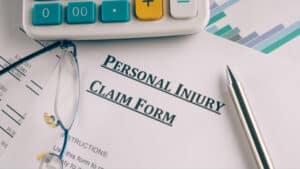This article was written by Chris Dolan and published by The San Francisco Examiner. Click here to read more of Chris Dolan’s weekly articles at SFExaminer.com.
This week’s question comes from James T in Freemont who asks: “I was traveling in a limo in LA with a colleague when, suddenly, the driver blacked out, slumped forward, and hit a wall. I had to jump over the seat and steer the car off the road. I got banged up pretty bad in the accident but we could have been killed. It turn out that he has a seizure disorder. He told me that this hadn’t happened before while driving. He said he had been up late on a job the night before. He was vague as to whether the company knew about his disorder. What are my rights? Who is responsible for the harm caused to me? I’m in physical pain and this has been very upsetting. I’m even having nightmares.
James, your case presents many significant issues. But before I address these technical issues I want to say I can only begin to imagine the shock and horror you must have experienced when you saw the driver unconscious, hit a wall, and had to save yourself by acting as you did. You have a great survival instinct and obviously great reflexes. You handled a difficult situation expertly and as a result you saved three lives, including your own.
As the driver was transporting people for hire he is a “common carrier” under California law and, as such, owed you, his passenger “the highest degree of care.” This is significant as you and I, if driving our own cars not in exchange for money, owe our passengers a “reasonable degree of care.” Therefore a strong argument can be made that the driver knew that his condition presented a danger to his passengers and, therefore, he should not have put you into harm’s way.
To prove a case of negligence you must prove breach of a legal duty owed to you to a preponderance of the evidence standard meaning, simply, proving that it more likely than not that he breached the highest degree of care. Likewise, you would have to prove that any harm you suffered was more likely than not caused or exacerbated by the incident as well.
It appears to me that there is a high probability that you can establish negligence against the driver in that he not only violated the highest degree of care, he violated the reasonable degree of care standard for operating a vehicle, as he knew, or should have known, that he has a condition which could result in a lapse of consciousness. Likewise, if he was “exhausted” from lack of sleep (driving under such a condition is similar to driving drunk) he violates both the higher and lower standard. It is unclear whether he lied on his license application or to his employer about his medical condition but there too he would have an obligation to be truthful and an affirmative obligation of disclosure. I am of the strong opinion that liability against the driver can be proven. If he is found to have deliberately lied, or consciously put your lives in danger by driving when he knew he should not have (either he had been so informed by his doctor, he failed to take medication, or he was driving without sleep which might trigger his condition) then he may also be liable for punitive damages if you can show by clear and convincing evidence that he acted with a conscious disregard for your rights and safety.
An employer is responsible for its employee’s actions. Under California Labor Code Section 2802 an employer shall indemnify his or her employee for all necessary expenditures or losses incurred by the employee in direct consequence of the discharge of his or her duties. Therefore, the limo company should have insurance (under law limos must carry a minimum of $750,000.00 of insurance) for your injuries.
The driver’s doctor might also be responsible if she knew of the possibility of seizures or blackouts and did not meet her/his statutory obligation to notify the California Health and Safety Code Section 103900 mandates that physicians report patients over age 13 with these disorders to local health officers, who in turn transmit the reports (Confidential Morbidity Reports, or CMRs) to the DMV. If a doctor knew of this disorder and failed to follow the law, that doctor may also have some liability for the injuries which were caused.
Normally I would advise you to try and work this out directly with the driver and/or the driver’s employer. Given the complexity of a case such as this I suggest that you get legal advice. Obtaining the services of a contingent fee lawyer will allow you to obtain premium legal representation without making payments on an hourly basis. Contingent fee attorneys usually advance all costs of prosecuting a case and, upon successful completion of the case, recover the costs that t hey expended and take a percentage of the recovery, if any, and charge nothing if there is no recovery.










